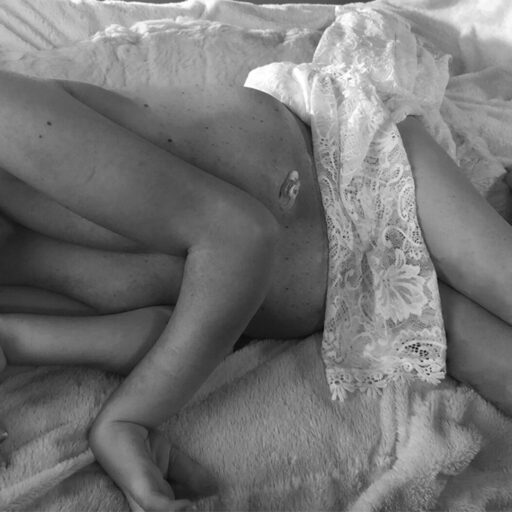Content warning: Having consent disregarded, stories that may be triggering to abuse survivors
A few days ago, in another post I started talking about self-esteem and consent and how they affect the sex life of a person with a disability. I ended it by saying it’s easy to give my body away when I don’t really care about it. What I left out was this: it became even easier to give away my because when I started detaching from said body at a really young age.
A common theme I see all too often within the realm of people with physical disabilities is that we are taught at a young age that our bodies don’t really belong to us. Someone else can always do something to us regardless of how we feel about it. Essentially, our “no’s” hold no weight. Allow me to explain…
Example 1: A young kid, younger than eight years old, has to go to physical therapy even though the kid hates it because it hurts. Adults tell the kid that physical therapy isn’t an option, it’s a must. And during physical therapy when the kid begs for them to stop because it’s too much pain the adults tell the kid that they are fine. The adults don’t stop until they hear something snap. This happens more than once.
Example 2: A ten-year-old kid is eating lunch via a tube in their stomach. They tell their caregiver that they can’t eat anymore because they are full. They caregiver tells the kid that they are wrong and can’t be full because they eat the same amount of food every day. The caregiver just keeps pushing the food down and the kid throws up.
Example 3: Let’s say a fifteen-year-old kid has to have a small procedure. Doctors say it won’t hurt so the kid doesn’t get sedation. Ten minutes into the procedure the kid is begging for it to stop and the surgeon refuses because he’s in a rush. The pain is unbearable, and the kid was screaming. The procedure takes another half an hour to finish.
Example 4: A kid has a bunch of caregivers that they can’t stand and that they really don’t even want to touch them. But these caregivers have to touch them because there’s no one else to take care of them.
Maybe these scenarios are all me or maybe they’re stories from friends in similar positions as me. Either way, these are just a few examples; imagine having an entire lifetime of these scenarios. It is this erasure of bodily autonomy as a kid that leads to issues as an adult. I am so accustomed to things happening to my body that I often expect discomfort (physical or otherwise) and just check out. Most of the time I am completely disconnected from my body and it is something I started doing as a kid when no one listened to my protests.
I have had sex with exactly two men who I thought would stop in the middle of it if I asked them to. Nonetheless, I have never asked any guy to. It’s easier to just check out of sex than it is to say I changed my mind in the middle of it and possibly have to live with the repercussions of being ignored.
How exactly does one unlearn that their consent isn’t valid and necessary? That is something I am trying to do as I continue to date and have sex…remember that as you read my future posts recounting my sexual experiences.
Moral of the story for you: You deserve to give, take back, and have people honor your consent regardless of your ability and or how you were raised. Remember that.
Moral of the story for the non-disabled reader: As someone with more physical power it is your job to honor the wishes of those weaker than you and create spaces where they feel comfortable enough to share those wishes.

Thank you for this blog. I am an industrial designer working with sex tech and disability. Stories like these make me work even harder and push the limits.
Thank you for reading! I would love to talk more about what you do